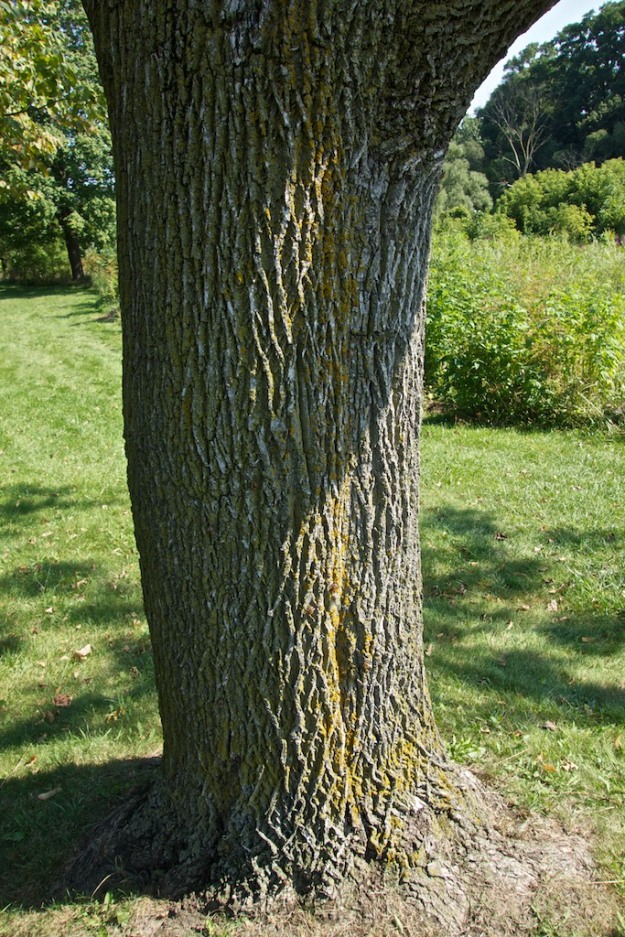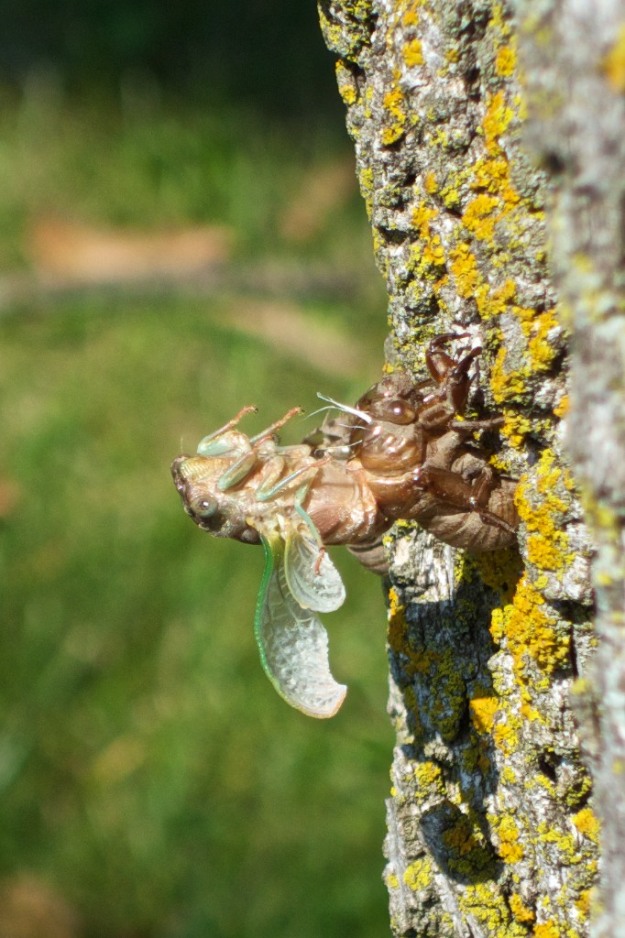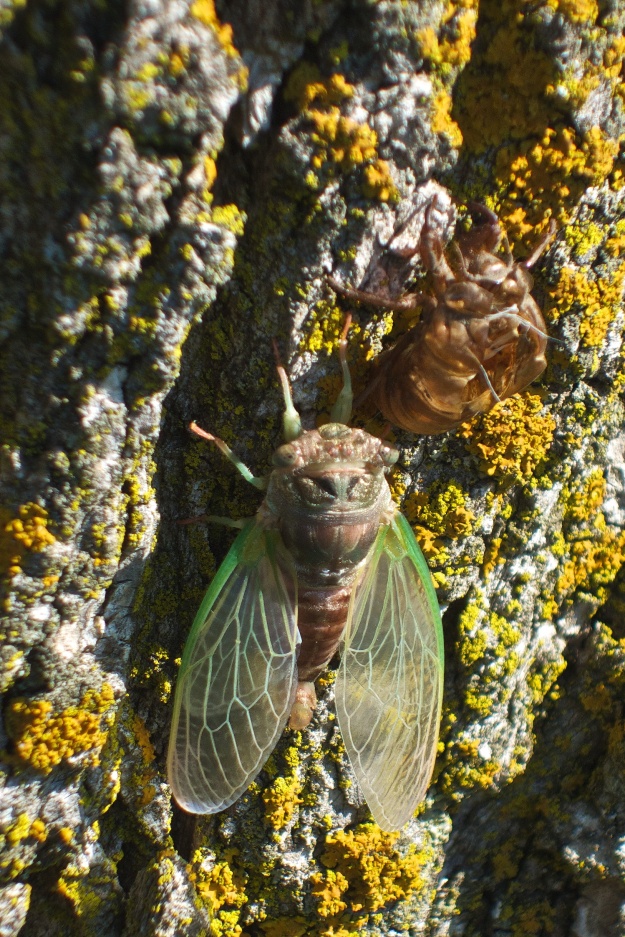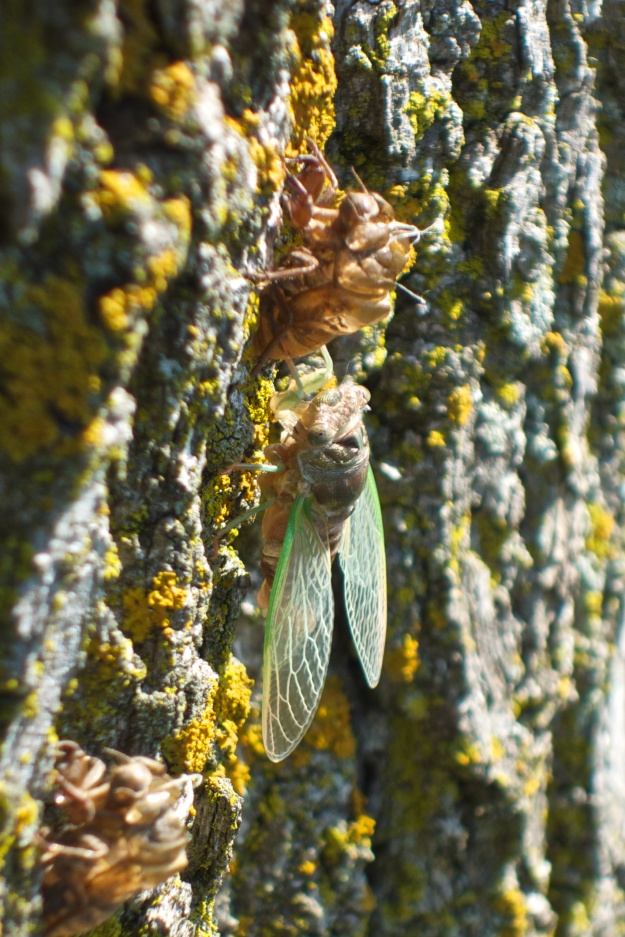Unless you know what to look for (thanks, Codemonkey), the mysterious life cycle of the cicada happens without most people noticing. We can hear the electrical sounding buzzer noise that cicadas produce in late summer but where they come from is rarely given a second thought. Unlike their better known American cousins with 17-year life cycles, the ones seen in Toronto have 2-5 year cycles of birth and death. Ours are known as Dog-Day Cicadas, Harvestflies or formally, Tibicen Canicularis. The common names refer to the later days of summer in which they appear. Because their life cycles overlap, our cicadas appear every year.
From a human perspective, their life begins when they come up from burrows in the ground and climb a tree. They pump fluid into their abdomens which bursts open the exoskeleton from which they emerge. At this final life stage, tiny wings are revealed. After a few minutes these wings inflate with blood and unfurl to grow larger than the insect itself. The adult cicada is now ready to fly.
Adults can live for 5-6 weeks if they’re not picked off by birds and other predators. Most of the time, we can’t see them but we can certainly hear them. Males are the noisemakers and they produce that familiar deafening sound to attract a mate. Female cicadas carve slits in tree branches and lay their eggs. After hatching, nymphs drop to the ground. This first larval stage digs until reaching tree roots from which they feed, moulting several times before that last stage above ground some years later.
There is a folk legend that the first buzz of cicadas in late summer indicates there are only six weeks until frost.
What a depressing thought.





